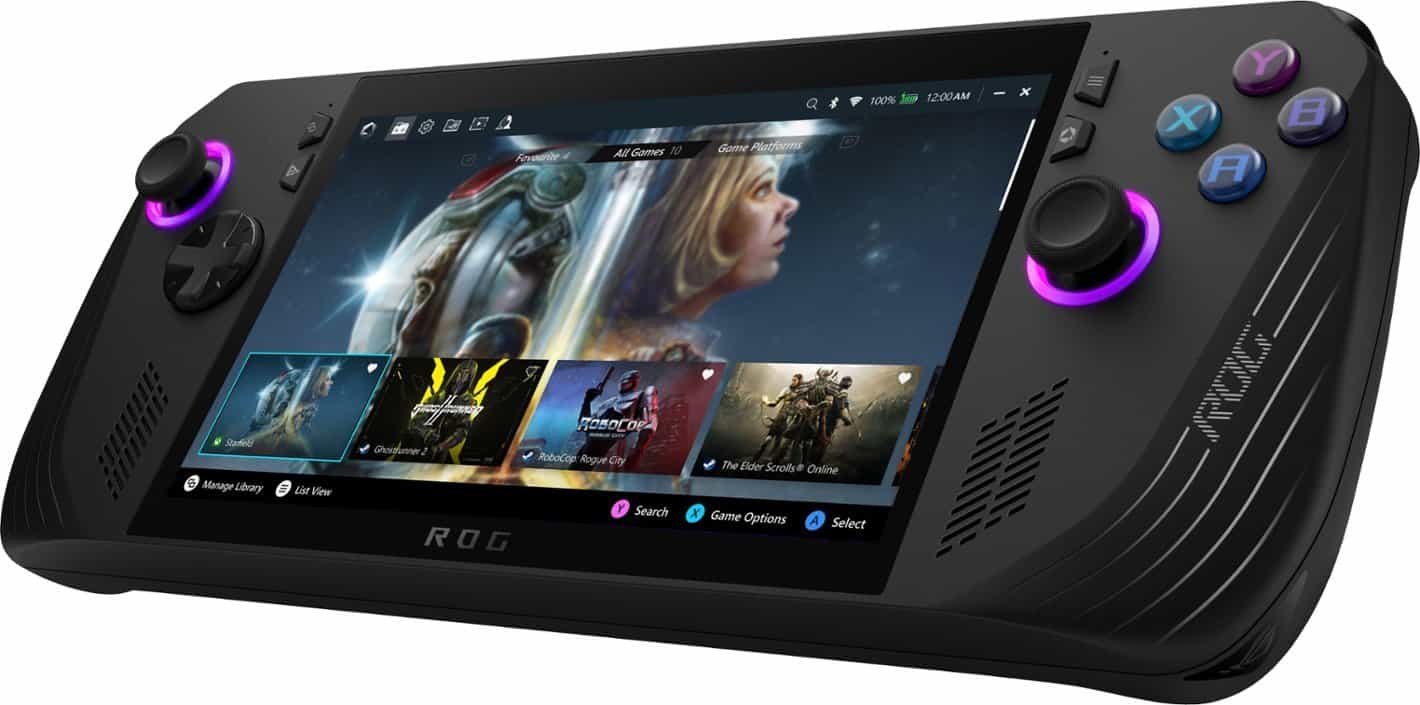ASUS claims it doesn’t “base the pricing of the ROG Ally on other handhelds” as performance comes first

There’s plenty of PC gaming handheld competition on the market these days. ASUS was relatively quick to make its move following the launch of Valve’s Steam Deck, the device that kicked off the widespread popularity of this form factor. The ROG Ally and ROG Ally X make up ASUS’ current selection of handhelds and it is yet to announce another model this year.
All we know is that the next ROG Ally will likely stick to Windows and the company has already been considering the possibility of introducing an OLED display into the mix. Both of these revelations stem from a recent Q&A session we held with the ASUS ROG team, and there’s another thing to want to talk about today – price.
Prime Day is finally here! Find all the biggest tech and PC deals below.
- Sapphire 11348-03-20G Pulse AMD Radeon™ RX 9070 XT Was $779 Now $739
- AMD Ryzen 7 7800X3D 8-Core, 16-Thread Desktop Processor Was $449 Now $341
- ASUS RTX™ 5060 OC Edition Graphics Card Was $379 Now $339
- LG 77-Inch Class OLED evo AI 4K C5 Series Smart TV Was $3,696 Now $2,796
- Intel® Core™ i7-14700K New Gaming Desktop Was $320.99 Now $274
- Lexar 2TB NM1090 w/HeatSink SSD PCIe Gen5x4 NVMe M.2 Was $281.97 Now $214.98
- Apple Watch Series 10 GPS + Cellular 42mm case Smartwatch Was $499.99 Now $379.99
- ASUS ROG Strix G16 (2025) 16" FHD, RTX 5060 gaming laptop Was $1,499.99 Now $1,274.99
- Apple iPad mini (A17 Pro): Apple Intelligence Was $499.99 Now $379.99
*Prices and savings subject to change. Click through to get the current prices.
ASUS says the ROG Ally offers “superior performance” instead of worrying about rival pricing
Right now, the ROG Ally X is one of the most expensive handhelds on the market, retailing at $799.99 for the 1TB model and $899.99 for the 2TB. In comparison, Legion Go is around $100 cheaper while offering the same Z1 Extreme processing power. However, ASUS makes it clear that it is focused on its own hardware – not its rivals. When asked if there are any plans to compete with the Steam Deck on price, here’s what the team at ASUS ROG had to say:
“We do not intend to base the pricing of the ROG Ally on other handhelds in the market. We believe our device provides a unique experience, offering superior performance and access to a wider range of gaming platforms. Our goal is to deliver gamers an excellent experience with access to any game collection, any Windows app, any game store all with great performance, higher FPS and higher graphics settings.”
ASUS ROG
ASUS ROG suggests that the “unique experience” of its handhelds is a key focus. For comparison, the ROG Ally X offers excellent battery life and improved RAM against much of the competition, although Lenovo’s new Legion Go S answers back in the memory department at the very least with up to 32GB.
We think it’s safe to say that the price of the current ROG Ally line-up is one of its downsides, especially when you have the Steam Deck and Steam Deck OLED retailing from $399 and $549 for the LCD and OLED models respectively. It seems as if ASUS has little motivation to compete within the Steam Deck’s lower price bracket, instead embracing its stronger hardware and more widespread compatibility as a Windows machine.

